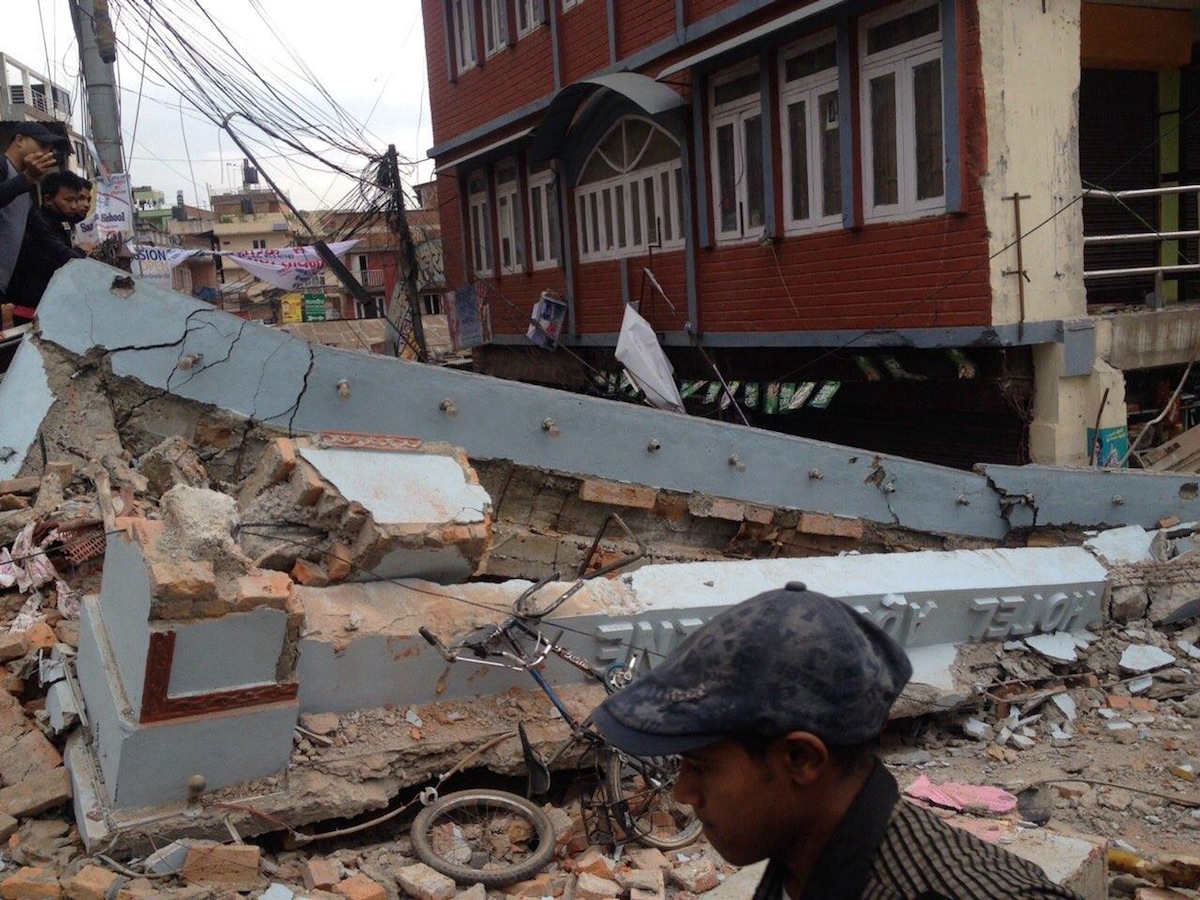The author of Nepal’s building code says the earthquake that killed more than 4,300 people and caused at least $2 billion in economic losses could have been less destructive if the code had been properly implemented and enforced.
The tragedy was predictable given the conditions of the nation’s building stock. “It was inevitable, absolutely inevitable,” Richard Sharpe told Bloomberg Business. Sharpe is a New Zealand earthquake engineer who led a team that formulated Nepal’s only set of building standards 20 years ago.
The earthquake struck during a period following a decade-long Maoist guerrilla war that preceded years of political struggles following the removal of a 240-year-old monarchy in 2008. The unrest made code implementation and enforcement much more difficult.
What’s more, the capital of Kathmandu has expanded to an old lake bed south of the city— an area that is unstable and susceptible to liquefaction—in recent years. Buildings have not been designed to cope with those conditions.
Related Stories
Codes and Standards | Feb 16, 2021
Feds may fund removal of some urban highways
Senate bill proposes pilot program to reknit communities.
Codes and Standards | Feb 16, 2021
Bechtel joins international heat resilience organization
Experience designing resilience standards to aid effort to protect communities from extreme heat.
Codes and Standards | Feb 10, 2021
More than two-thirds of construction companies say COVID-19 has not impacted their ESOP
Half of survey respondents say 2020 project profitability decreased due to pandemic.
Codes and Standards | Feb 9, 2021
New Jersey approves new electric vehicle-ready home requirement
Homebuyers must be given option for charging station on new construction.
Codes and Standards | Feb 9, 2021
New California law removes barriers to residential development
Measure removes restrictions for ADUs in urban areas and master planned communities.
Codes and Standards | Feb 8, 2021
Alliance yields more accurate data for rating and certifying systems of construction materials
Crosswalk API offers trusted format to specify and procure healthier products.
Codes and Standards | Feb 4, 2021
2021 IBC requires automatic doors for entrances to public buildings
One door must be either a full power-operated door or a low-energy power-operated door.
Codes and Standards | Feb 3, 2021
Two new International Code Council online code tools released
Offer detailed information about global building code usage and U.S. adoptions.
Codes and Standards | Feb 2, 2021
Biden tells OSHA to bolster COVID-19 safety rules
Order could lead to a national playbook for fighting COVID-19 on jobsites.
Codes and Standards | Feb 1, 2021
Fenestration Alliance updates standard for mulled combination assemblies
Last updated in 2010, document describes procedures and requirements for air leakage, water resistance, and structural performance.

















